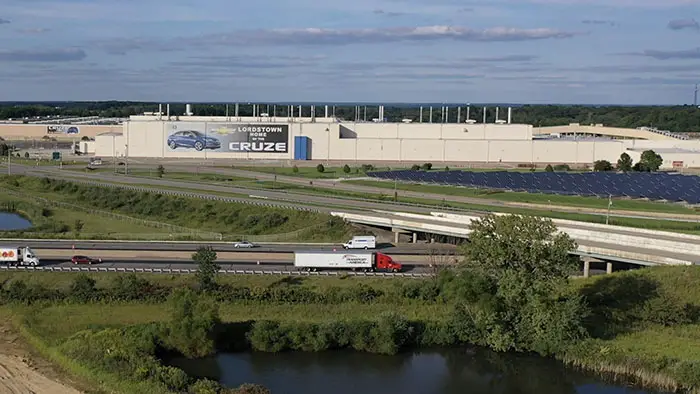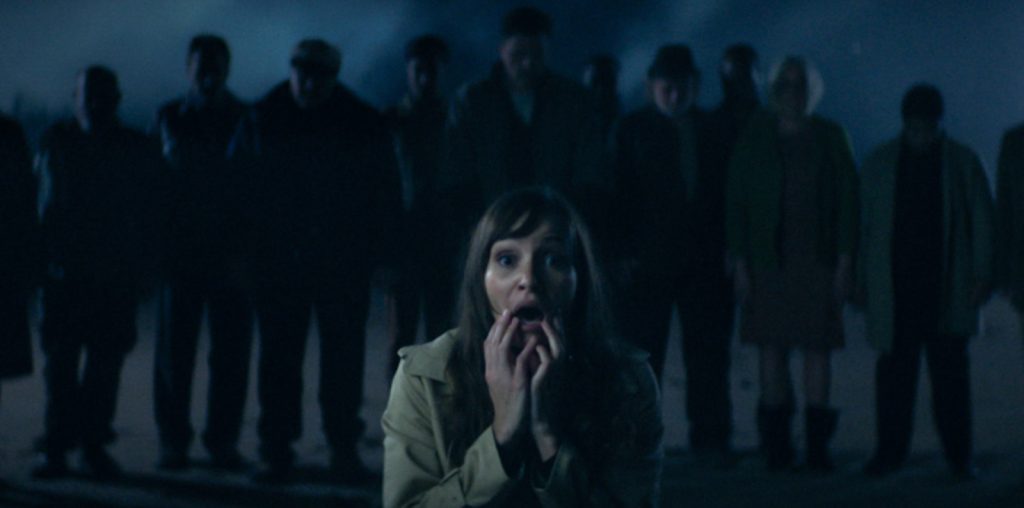
My takeaway from watching Bring It Home was the feeling of anger. I’m pretty sure that was the goal. The documentary presents one hard-luck case after the other and credibly builds frustration and sympathy at every turn. The individual stories are compelling and heartbreaking.
It’s hard not to feel empathy for its subjects and unfair situation. I was in this position in 2008, after the housing market crash. My 17-year career with one company instantly vanished along with my co-workers. We were fortunate to have a retirement plan we could carry with us. As I was living in Southern California, there was opportunity to find work elsewhere.

“…stories are compelling and heartbreaking.”
At the same time, it felt like anger was the only goal of Bring It Home. The documentary goes to great lengths to paint Donald Trump as one of the villains here. The film does go after CEO Barra, and rightfully so. This plan, I’m sure, was in the works long before and highlighted that wall that exists between billion-dollar corporate executives and the hundreds of lives they hold in their hands. I’m sure they think it’s easy for many workers to either move or learn to be coders.
My other frustration with docs of this nature that are sure to rile up our rage: either give us a solution or point out that this could happen to any town where its entire economy is based on one sector of industry. I would think that for other towns who rely solely on the auto industry, mining, or even tech for that matter, it’s just a matter of time when your home town becomes a ghost town. I could add the same question about retirement. What sense does it make to deny a retirement plan a worker paid into because they lost their job on an arbitrary date before they were eligible to collect. Am I the only one who sees a problem here?
Ranting aside. What Bring It Home does so well is personalize stories of the people caught up in the machine known as capitalism. Consider the repercussions your board room decisions — based solely on number crunching, dividend reports, and the bottom line — have on the average worker.
Bring It Home premiered on the World Channel.

"…sure to rile up our rage."



The stories depicted in the film are compelling and heartbreaking. The employees deserved better alternatives than the ones GM was offering. But by the same token, the film short shrifts GM’s side of the story, suggesting that GM had no reason other then corporate greed to close the plant. The company had too much underutilized plant capacity and decided to phase out the Cruze model due to poor sales and changing consumer preferences. Without another product to manufacture at Lordstown, what was GM supposed to do? At the same time, it seems unfair for the employees to bear so much of the burden of the plant’s closure while management continues to bank their bonuses.